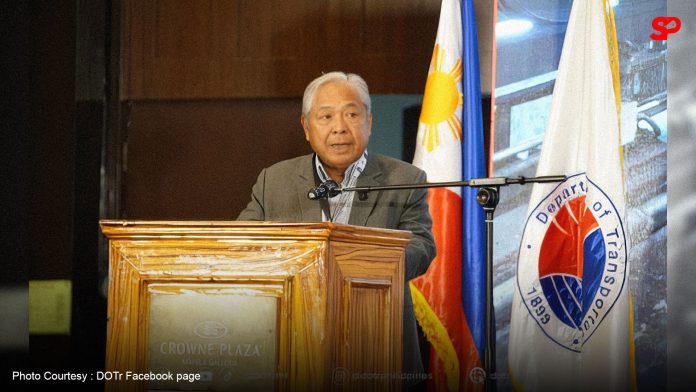MANILA – Passenger safety and security as well as socio-economic benefits to communities are paramount components of the Department of Transportation’s (DOTr) big-ticket rail projects.
During the 2nd Philippine Railway Conference at the Crowne Plaza Manila Galleria on Thursday, Transportation Secretary Jaime J. Bautista said safety and security awareness needs to be cascaded to every construction site of rail projects.
“Whether we build the elongated North-South Commuter Railway or the mammoth Metro Manila Subway or the pioneering Mindanao Railway, we should always be safety and security conscious at every phase of construction,” Bautista said in a news release.
Bautista noted that equally vital is the socio-economic impacts of rail infrastructures, adding that the implementation of rail projects generates jobs and spurs economic activity inside and around the project sites.
“Long before passengers actually experience comfortable and efficient train rides, residents of communities along these railway lines are the first beneficiaries of these infrastructure projects,” Bautista said.
He also cited the Philippine Railways Institute (PRI) for the globally competitive human resources needed in implementing the country’s new railway systems.
To ensure the availability of proficient rail operators and maintenance personnel, Bautista said the PRI has produced 3,300 trained personnel out of the 3,700 rail workers.
The DOTr will come out with an occupational safety and health policy for the railway sector that will mandate the protection and benefits of rail workers and ensure the safety and security of passengers.
“Prudence has prompted the PRI to ensure the availability of proficient rail operators and maintenance personnel years before the big-ticket rail systems go online,” Bautista said.
Representatives from the Japan International Cooperation Agency (JICA), Transportation Science Society of the Philippines (TSSP), and Asian Development Bank (ADB) also attended the conference themed “Reinforcing Safety and Security in the Philippine Railway Sector.”
JICA Philippines Chief Representative Sakamoto Takema shared their commitment and cooperation in helping the Philippines create and build a reliable, safe, and efficient railway system.
PRI OIC-Executive Director Anneli Lontoc expressed her gratitude to JICA, TSSP, and ADB as partners that helped in advancing the country’s railway sector.
“We are grateful for your support as we work towards providing the Filipino people with the comfortable, accessible, safe, sustainable, and affordable railway transportation system,” she said.
Japan Minister for Economic Affairs Nihei Daisuke attended the conference, highlighting how safety is at the heart of the railway business.
Nihei also expressed his hopes that through the conference, the railway industry, the government, and the academe will continue to collaborate and contribute to the future development of railway projects in the Philippines. (PNA)

